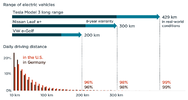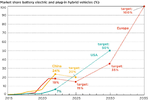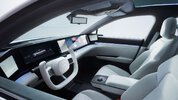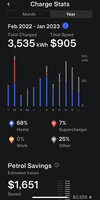- Joined
- 26 March 2014
- Posts
- 20,492
- Reactions
- 13,415
If you look at it purely commercially you are right, but in an uncertain world with uncertain supply lines, there is advantage in having a national manufacturing capacity because there will be spin-offs into other areas.Only if we actually make a major component here IMO.
If we made the batteries, it would probably sway some manufacturers, but most of our steel processing and materials processing has shut down in the last 30 years, so we would probably struggle to supply enough materials to make cars for our domestic consumption.
Let alone enough to export any great number, but if we have to import the battery packs, the sheet steel, the material for the upholstery then pay assembly line workers $100k/PA if you include annual leave, sickies, super, long service etc.
I just can't see a viable reason to do it here, when say Hyundai sells 100,000 cars here a year, much easier to make them in Singapore/Korea ship 5million to Asia and 100k to Australia.





